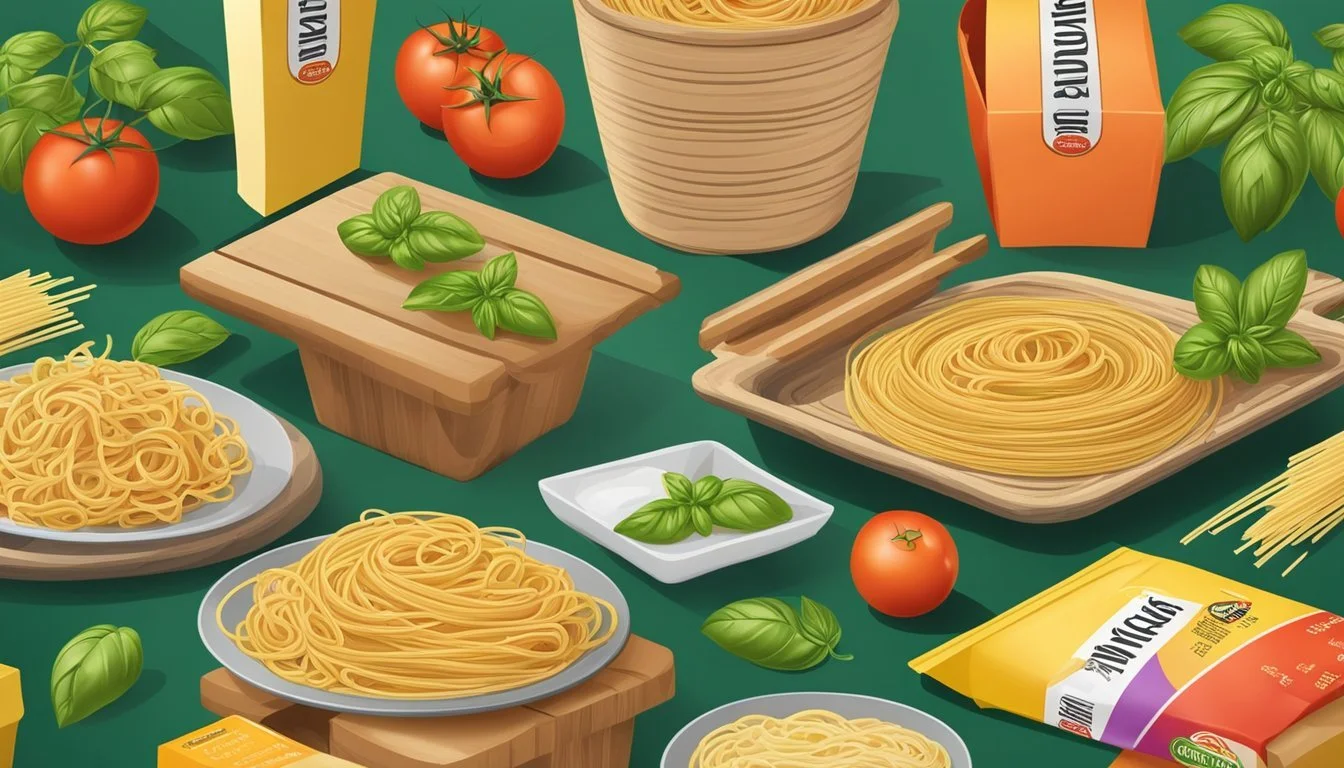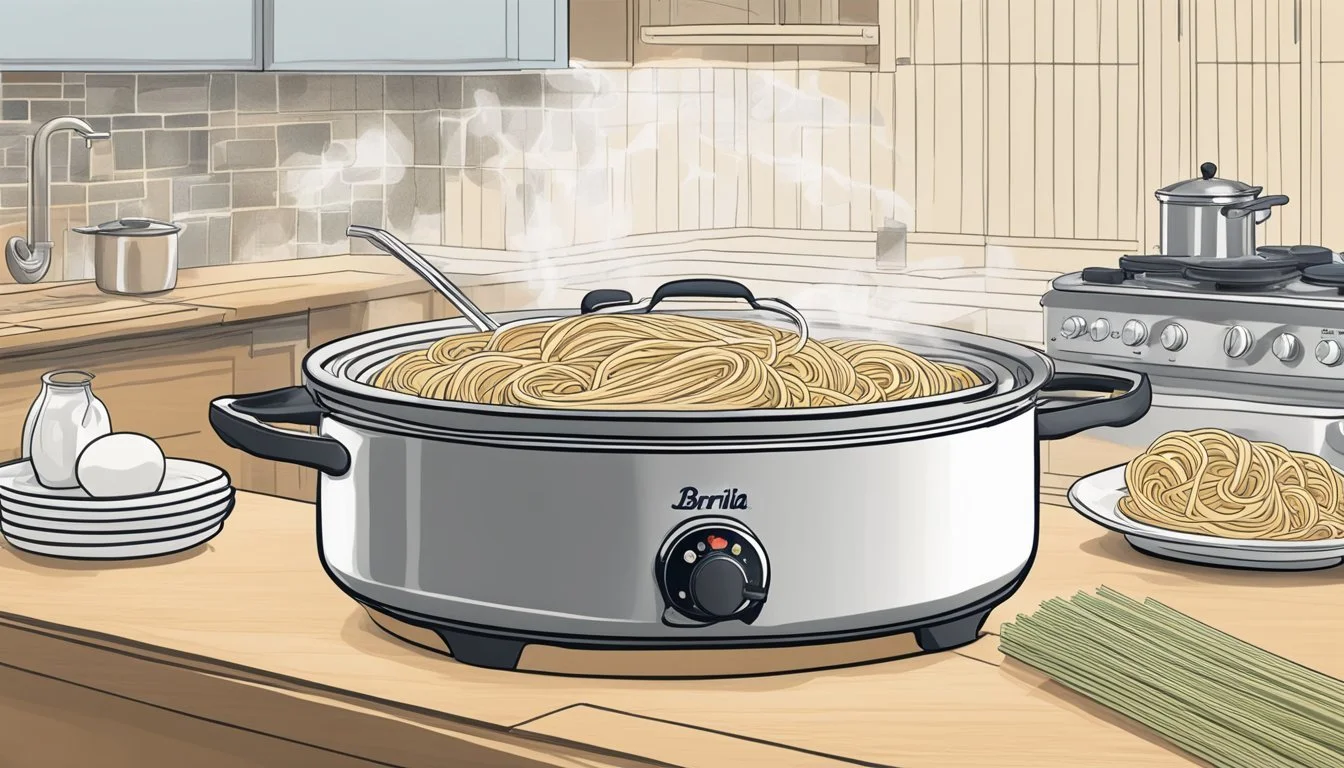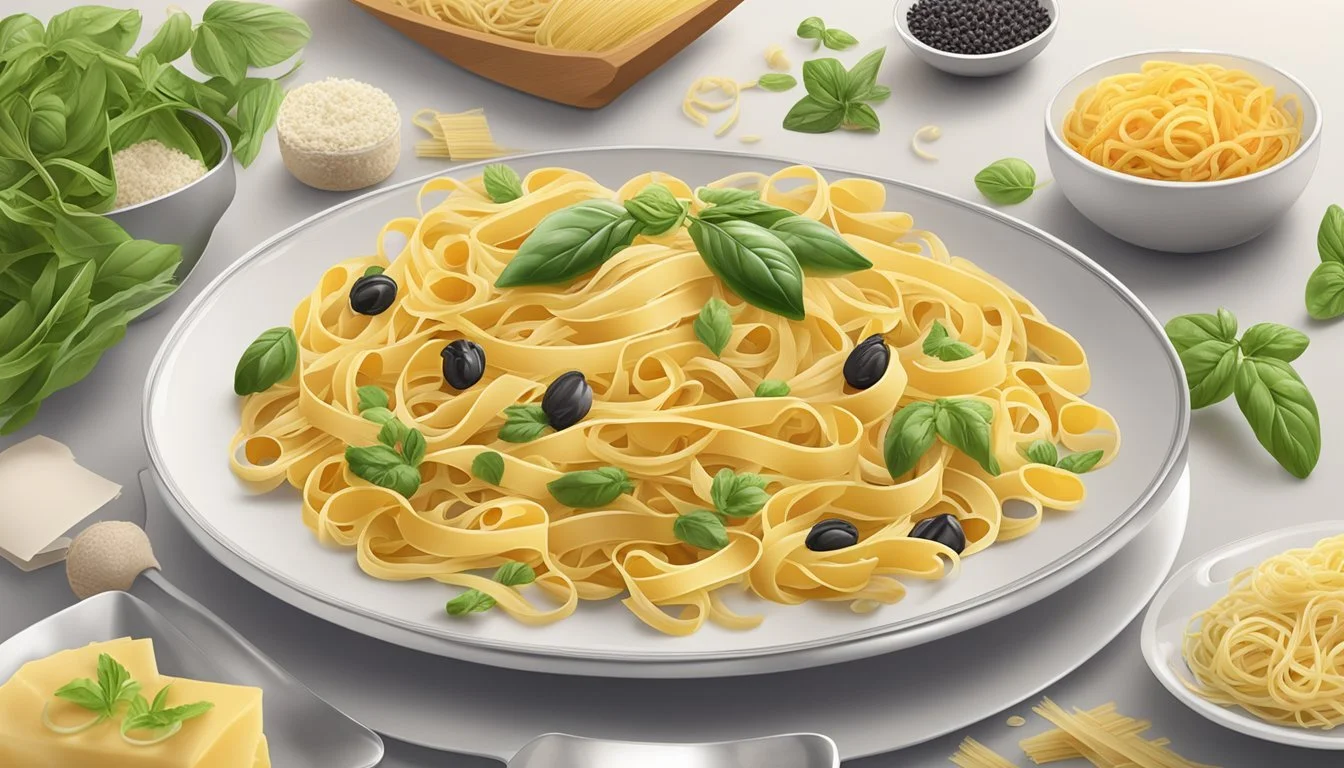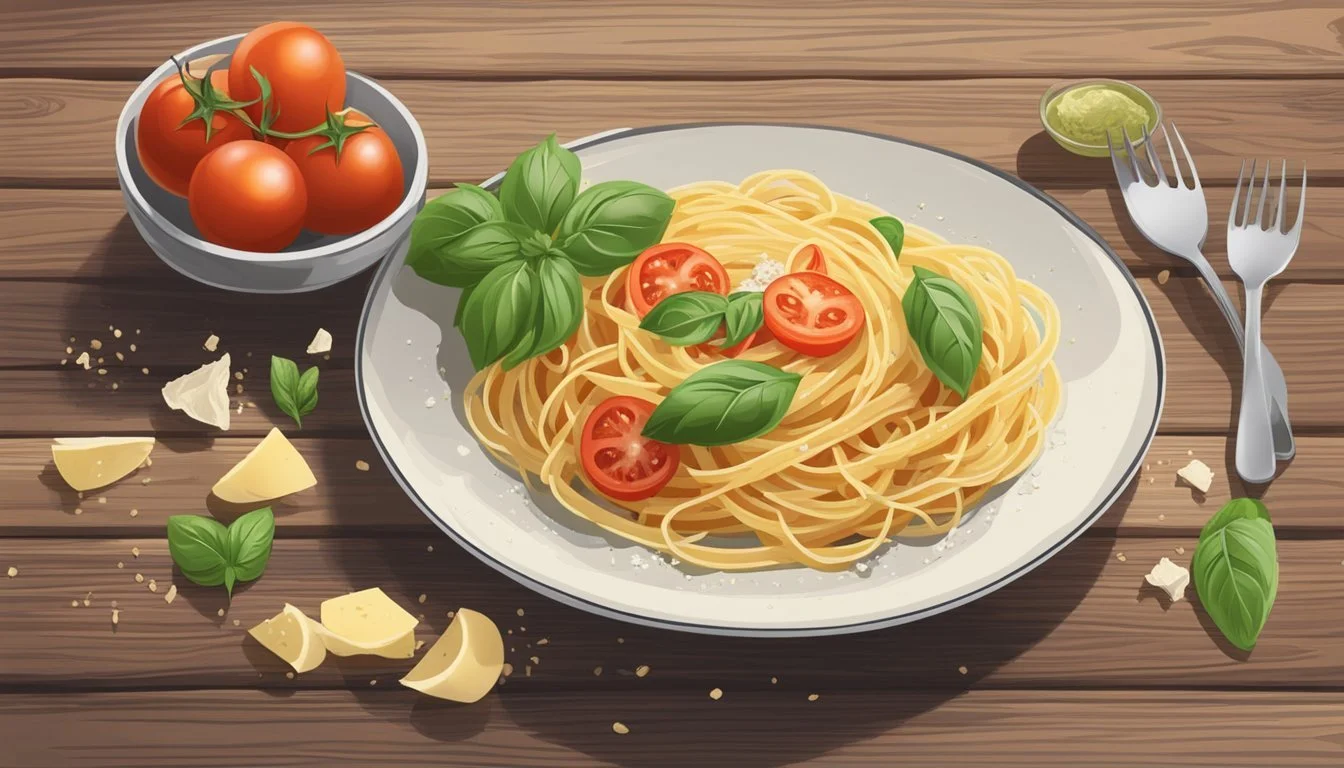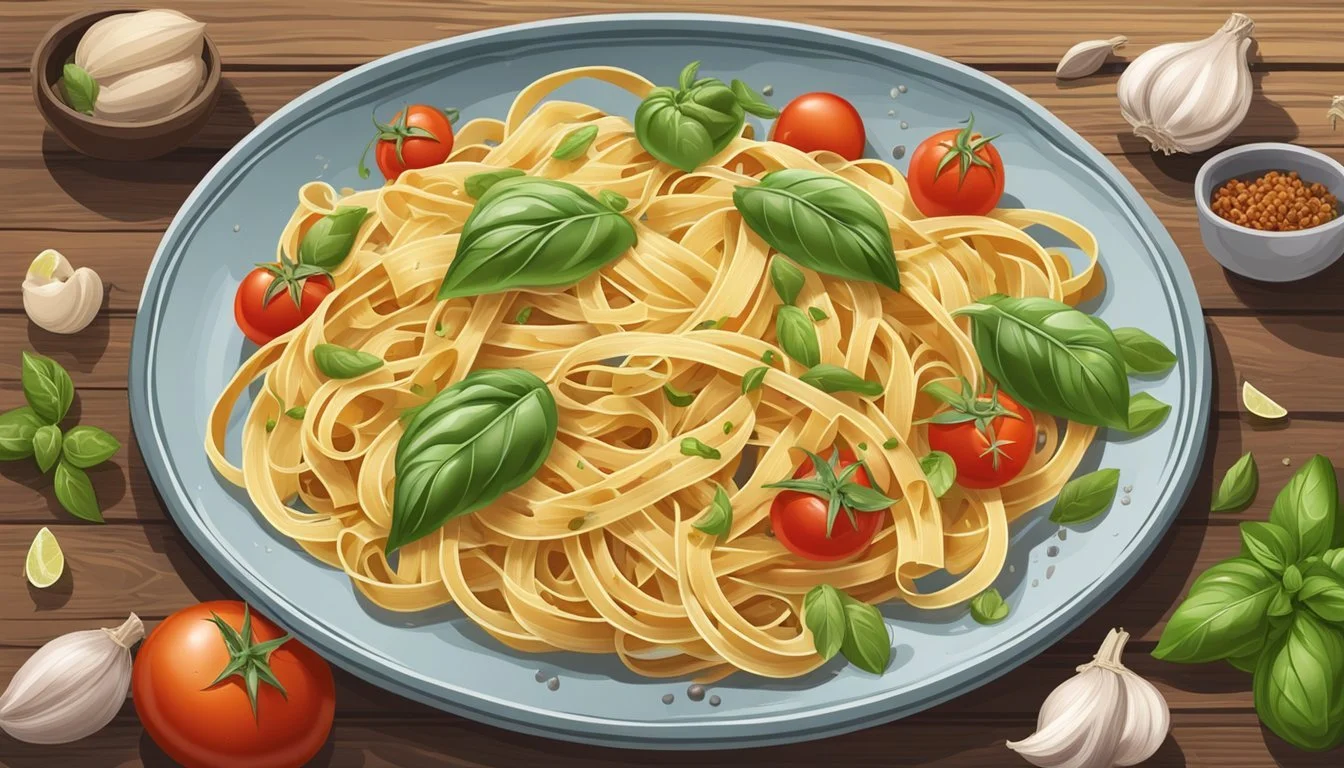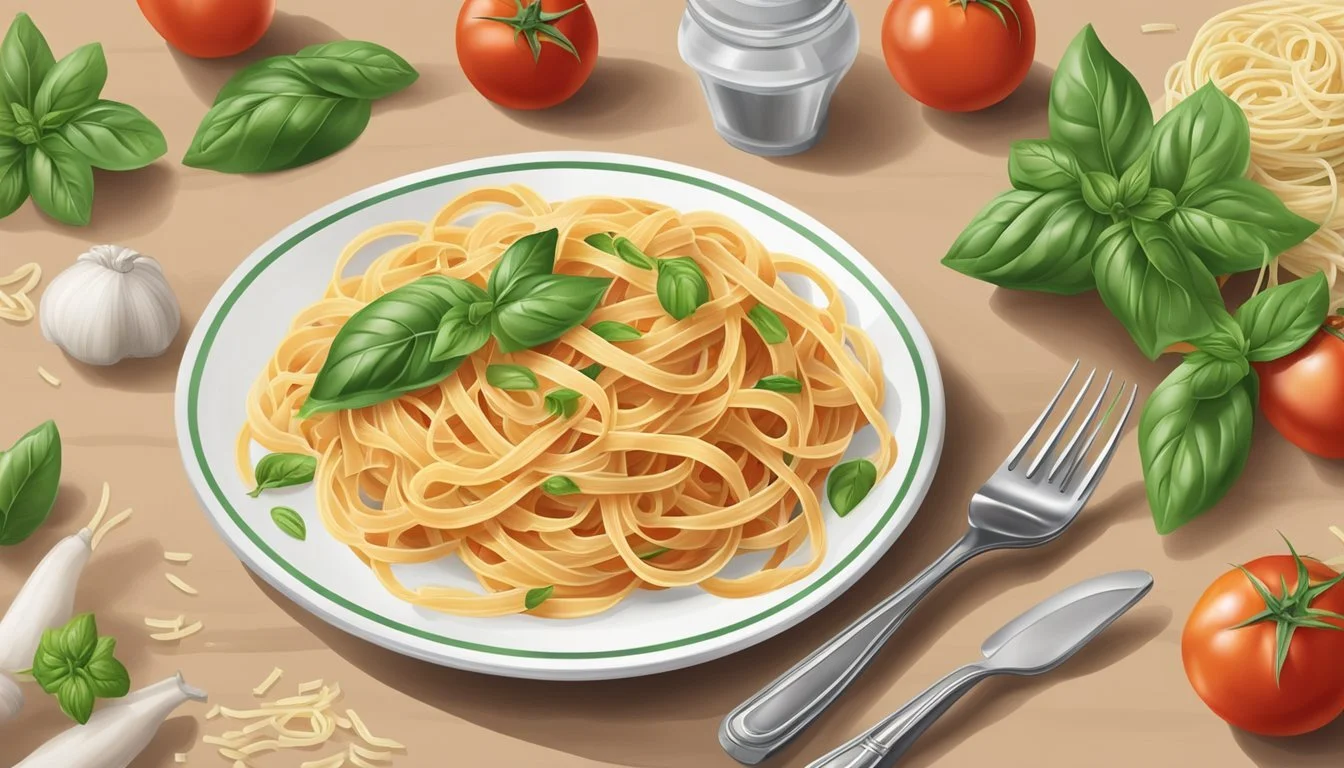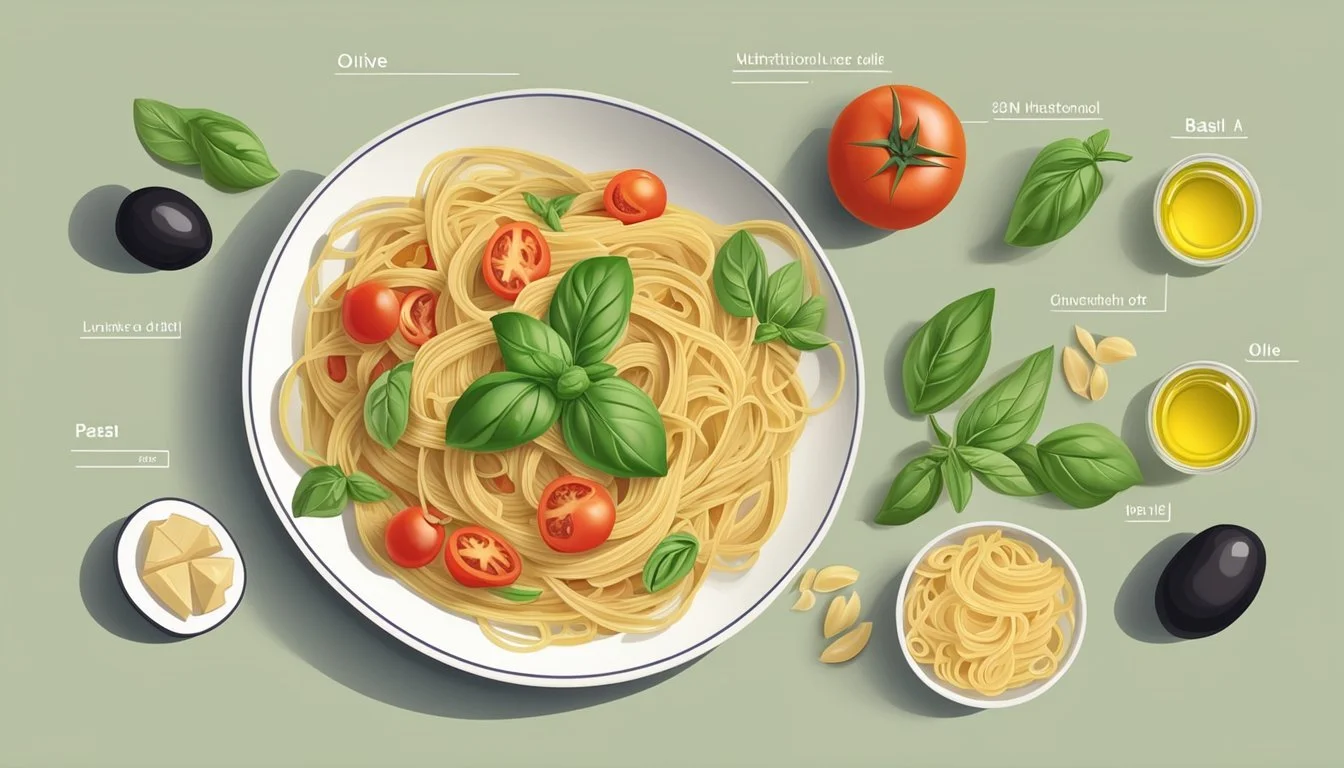Best Linguine Brands
Top Picks for Delicious Pasta Dishes
Linguine, a beloved Italian pasta, has a distinct flat and narrow shape that pairs exceptionally well with a variety of sauces, from creamy Alfredo to tangy marinara. Selecting the best linguine brand can be a delightful yet overwhelming task, given the numerous options available in the market.
Finding the right linguine brand enhances both the texture and flavor of your dishes, making every meal an enjoyable experience. The following article will guide you through some of the top choices, highlighting what makes each brand stand out and how they can elevate your culinary creations.
1) De Cecco Linguine
De Cecco Linguine is renowned for its high quality. The brand itself has a storied history, dating back to 1886, and has maintained its reputation for producing premium pasta.
What sets De Cecco apart is its use of bronze dies in the pasta-making process. This technique gives the pasta a rough surface that helps sauce cling better.
The pasta is made from 100% semolina flour, ensuring a consistent texture and flavor. De Cecco also slow-dries its pasta at low temperatures, which preserves the wheat's natural flavor and nutritional value.
Many chefs and home cooks prefer De Cecco Linguine for its excellent cooking properties. The pasta retains its shape well and has a pleasing, firm bite or "al dente" texture.
Overall, De Cecco Linguine offers a dependable choice for those seeking high-quality pasta that delivers consistent results in various dishes.
2) Barilla Collezione Artisanal Linguine
Barilla Collezione Artisanal Linguine stands out for its quality and taste. Produced using traditional bronze dies, this pasta offers a rough texture that holds onto sauces well.
The cooking process is straightforward. Bring 4-6 quarts of water to a rolling boil, add salt, and then the pasta. Stir gently and return to a boil. For al dente texture, cook for 12 minutes. For a more tender result, add an extra minute.
Made from high-quality durum wheat semolina, Barilla Collezione Linguine has a firm bite and rich flavor. It pairs well with various sauces, from light olive oil-based dressings to robust tomato and seafood sauces.
This pasta is widely available in grocery stores, ensuring easy access for consumers. Its artisanal quality and versatility make it a popular choice among pasta lovers.
3) Rustichella d'Abruzzo Linguine
Rustichella d'Abruzzo offers an exceptional linguine known for its artisan quality. Produced in Abruzzo, Italy, this linguine uses traditional methods dating back to 1924. The pasta is crafted from high-quality durum wheat semolina and water, resulting in a texture that pairs well with various sauces.
One of the defining features of Rustichella d'Abruzzo linguine is its coarse texture. This texture is achieved through a bronze-extrusion process that helps the pasta hold onto sauces better. It mimics the pasta production techniques used in historic Italian kitchens.
The drying process also sets Rustichella d'Abruzzo apart. Slow drying at low temperatures allows the pasta to retain its flavor and nutritional value. This method preserves the integrity of the semolina, making it superior in taste and quality.
Packaging is another area where Rustichella d'Abruzzo shows its commitment to tradition. The rustic, brown paper packaging is designed to reflect the brand's heritage. It evokes a sense of nostalgia while ensuring the pasta remains protected.
Consumers often note the impressive cooking qualities of Rustichella d'Abruzzo linguine. It cooks evenly, maintaining its shape and consistency without becoming mushy. This makes it an excellent choice for both novice and experienced cooks.
Rustichella d'Abruzzo linguine provides a delightful culinary experience. Its combination of traditional methods, high-quality ingredients, and thoughtful packaging makes it a favorite among pasta enthusiasts worldwide.
4) Garofalo Linguine
Garofalo Linguine stands out for its attention to detail and commitment to quality. This brand, known for its rich history and solid reputation, offers pasta that consistently satisfies.
Made with high-quality durum wheat semolina, Garofalo's linguine provides a firm texture and a pleasant chew. The pasta pairs seamlessly with various sauces, making it versatile in different recipes.
Garofalo's pasta-making process includes using traditional bronze dies. This technique imparts a rough texture to the linguine, which helps sauces cling better. This feature enhances the overall dining experience by ensuring every bite is flavorful.
Garofalo launched its brand in Italy relatively recently, but it has quickly gained popularity. It embraces tiny imperfections in its pasta shapes, adding a touch of authenticity to each batch.
5) Rummo Linguine
Rummo Linguine stands out for its exceptional quality and traditional production methods. Established in 1846 by Antonio Rummo, the brand has a rich history spanning over 175 years. They use a method called "Slow Processing" which ensures a superior texture and flavor in their pasta.
Rummo Linguine is made from high-quality durum wheat, which gives it a firm and elastic texture. This pasta holds up well during cooking, maintaining its shape and offering a pleasant bite. It’s ideal for pairing with a variety of sauces.
The brand's commitment to tradition and quality makes Rummo Linguine a favorite among pasta enthusiasts. Whether used in simple dishes or more elaborate recipes, it consistently delivers excellent results. The flavor and texture set it apart from many other brands.
6) La Molisana Linguine
La Molisana Linguine is renowned for its quality and heritage. Originating from Liguria, this pasta is often paired with pesto or fish-based sauces. It offers a traditional taste experience and enhanced texture.
The company’s bronze-cut version of Linguine boasts a slightly thicker and full-bodied composition. This method enhances the pasta's ability to hold sauces, providing a robust culinary experience.
La Molisana emphasizes the use of high-grade semolina flour. This ensures the pasta maintains its firmness and nutritional content through cooking. The result is a consistent, high-quality product.
Cooking enthusiasts appreciate La Molisana for its authentic taste and reliable quality. The brand has successfully combined historical expertise with modern production techniques, appealing to both traditionalists and contemporary cooks alike.
7) Antica Pasta Linguine
Antica Pasta Linguine stands out for its flat and narrow shape, making it a versatile choice for many dishes.
Their linguine pairs perfectly with fresh tomato-based sauces, which enhance its texture and flavor. Vegetables and herbs also complement it well.
This brand's linguine excels with seafood-based sauces. Fish and meat sauces, alongside vegetable preparations, are ideal pairings.
Antica Pasta Linguine also shines with cheese-based sauces mixed with spices like saffron, curry, ginger, and horseradish.
It's a favorite among those who appreciate traditional Italian pasta with a modern twist.
8) Benedetto Cavalieri Linguine
Benedetto Cavalieri is a renowned name in the world of Italian pasta. Established in 1918, the brand is celebrated for its meticulous production process. They often use durum wheat cultivated under the sunny skies of Apulia, enhancing the quality and flavor of their pasta.
Their linguine stands out due to its texture and taste. The slow pressing and low-temperature drying methods preserve the wheat's natural flavors. This results in a pasta that cooks evenly and holds sauces perfectly.
What truly distinguishes Benedetto Cavalieri Linguine is its resilience during cooking. It remains firm without becoming mushy, a characteristic appreciated by pasta enthusiasts. This consistency makes it a favorite among both home cooks and professional chefs.
The brand's commitment to tradition and quality reflects in every bite. Benedetto Cavalieri Linguine offers an authentic Italian pasta experience, making it a top choice for those seeking premium pasta.
9) Martelli Linguine
Martelli Linguine stands out due to its artisanal production methods. Made by Pastificio Martelli, a family-run operation in Lari, Tuscany, this pasta is known for its quality and traditional approach.
The Martelli family uses bronze dies to shape the pasta. This technique ensures that the linguine has a rough texture, which helps sauces cling better.
Each batch of Martelli Linguine is air-dried for 50 hours, which maintains its flavor and texture. Martelli prioritizes high-quality durum wheat semolina, resulting in a robust and flavorful pasta.
Martelli Linguine is a favorite among pasta enthusiasts. Its firm texture and excellent sauce absorption make it versatile for various dishes. Its reputation in the culinary world remains high.
10) Pasta Mancini Linguine
Pasta Mancini Linguine is renowned for its high-quality ingredients and craftsmanship. Produced in Fermo, Italy, this pasta is made from 100% Italian durum wheat.
The wheat is milled directly on-site, ensuring a fresh and consistent flavor.
This linguine stands out due to its unique production process. The dough is extruded through circular bronze dies, giving the pasta a rough texture that helps sauce cling better.
The pasta is then dried at low temperatures for over 48 hours, preserving its nutritional qualities and enhancing its flavor.
Chefs and home cooks alike appreciate Pasta Mancini for its firm texture and exceptional taste. The pasta holds up well when cooked, providing a satisfying bite without becoming overly soft.
Its robust flavor pairs well with various sauces, making it a versatile choice for numerous recipes.
Pasta Mancini’s commitment to quality and tradition makes their linguine a standout option for anyone seeking an authentic Italian pasta experience.
Nutritional Value of Linguine
Linguine is a staple in many diets due to its versatility and ease of preparation. Comprehending its nutritional content can help individuals make informed dietary choices.
Macronutrients
Linguine primarily consists of carbohydrates, which supply energy. A typical serving of linguine (about 2 ounces, dry) contains approximately 200 calories, 1 gram of fat, and 41 grams of carbohydrates. Of the carbohydrates, around 2 grams are sugars and 2 grams are dietary fiber. Moreover, linguine offers about 7 grams of protein per serving, contributing to daily protein intake.
The fat content in linguine is minimal, with less than 1 gram of saturated fat. This composition makes it a low-fat food item suitable for various diet plans focusing on calorie and fat control.
Vitamins and Minerals
Linguine provides several essential vitamins and minerals. A common serving includes small amounts of iron and B vitamins like niacin and thiamin, which aid in energy metabolism and overall health. Additionally, linguine might have a trace amount of sodium, especially when cooked with salted water.
While linguine isn't particularly high in micronutrients, it can still contribute to daily nutritional requirements. Enriched versions of linguine might offer added folic acid and riboflavin, enhancing its nutrient profile.
Ingredients and Production Process
The quality of linguine largely depends on the ingredients used and the methods employed during production. High-quality wheat and meticulous production processes contribute to the best brands of linguine.
Wheat and Other Grains
Top-tier linguine often uses durum wheat semolina. This variety of wheat provides a high protein content, which is crucial for creating pasta that holds together well during cooking.
In addition to durum wheat, some brands incorporate other grains to enhance texture and flavor. For instance, some may include spelt or emmer wheat, which present unique qualities and contribute to a richer culinary experience.
Brands like Barilla and De Cecco are known for their stringent selection of wheat varieties. This ensures not only consistency in texture but also superior taste. The emphasis on high-quality grains is a hallmark of reputable linguine producers.
Artisanal vs. Industrial Production
Artisanal production involves traditional techniques such as slow kneading and low-temperature drying. These methods help to preserve the natural flavors of the wheat and result in a pasta with a more authentic taste and desirable texture.
For example, Benedetto Cavalieri uses a slow drying process that retains the wheat's original character.
In contrast, industrial production methods focus on efficiency and scalability, often involving high-temperature drying and rapid processing. While this can affect flavor subtleties, brands like Barilla achieve a balance between large-scale production and quality.
Artisanal techniques might offer a superior sensory experience, but industrially produced linguine can still provide excellent quality due to rigorous quality control measures. Both methods have their pros and cons, which cater to different preferences and needs.

